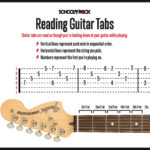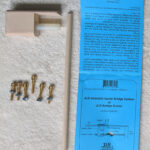Not long ago, I shared my electric guitar brand tier list, and many of you asked for an acoustic version. So, here it is – my take on ranking acoustic guitar brands, from best to worst, based on my personal experience.
This list is based on brands I’ve personally played. Keep in mind that some guitars are made in the same factories, and brands often have both entry-level and high-end models. My tiers represent my overall brand ranking.
Let’s dive in:
F Tier
Rogue: Designed as budget entry-level guitars, but for the money, you’re better off finding a used guitar from a C or B tier brand. When it comes to acoustic electric models, the electronics and overall build often reflect the low price point, making them less reliable for performance.
Mitchell: As Guitar Center’s house brand (where I used to work), Mitchell acoustics, in my experience, simply weren’t impressive. Acoustic-electric versions often suffered from muddy amplified tones and basic electronics.
D Tier
The D tier brands often struggle with tone, mainly due to laminated tops. Solid wood tops generally produce a richer sound, which is especially crucial in acoustic electric guitars for optimal amplified tone.
Washburn: Possibly the best of the D tier, but most Washburn acoustics I’ve played were just ‘meh’. Their acoustic electric models tend to be similarly average, lacking the sonic depth and clarity sought in amplified settings.
Ibanez: Visually appealing, but the laminated tops hinder their sound. Playability and setup are decent, but the tone isn’t there. While Ibanez is known for electric guitars, their acoustic electrics often fall short in delivering a truly resonant and dynamic amplified acoustic sound.
Fender: Similar to Ibanez, even Fender’s solid top acoustics haven’t impressed me sonically. While Fender is iconic for electric guitars, their acoustic electric line often lacks the acoustic richness and pickup quality to compete with brands specializing in acoustics.
C Tier
Guild: I appreciate Guild electrics more than their acoustics, which often feel a bit lifeless to me. Guild acoustic electrics can be hit or miss; some older models are valued, but newer ones can lack the vibrant acoustic tone that translates well when amplified.
Gretsch: Gretsch electrics are fantastic (B tier in my electric list), but their acoustics lack volume and openness. This characteristic carries into their acoustic electric guitars; while visually distinct, they may not offer the most robust or versatile amplified acoustic tone.
Takamine: Whether budget-friendly or higher-end, Takamine acoustics often sound thin and lack low-end. However, if you prefer brighter tones, Takamine might suit you. Takamine acoustic electrics are widely used by performing musicians, known for their reliable electronics and stage-ready sound, even if tonally they lean towards brighter profiles.
Epiphone: Masterbilt Epiphones are B tier due to exceptional value, but the cheaper models lower the overall brand to C tier for me. Epiphone acoustic electrics offer an affordable entry point, but often lack the refined acoustic tone and pickup quality of higher-tier brands.
B Tier
Alvarez: My Alvarez Yairi is A tier material – handmade in Japan with solid woods. However, many Alvarez guitars are budget-friendly and sonically average, impacting the overall brand ranking. Alvarez acoustic electrics, especially the Yairi models, can offer excellent sound and craftsmanship, but the consistency across their range varies.
Ovation: I’ve played many great sounding Ovations. Unique sound and feel, polarizing round back – you either love it or hate it. Pricier Ovations sound great, cheaper ones are still decent. Ovation acoustic electrics are famous for their feedback resistance and stage-ready design, though their unique tone may not appeal to all players seeking a traditional acoustic sound.
Larrivée: Their sound isn’t my personal favorite, though I can see why some might rank them A tier. Solid quality guitars, just not for me. Larrivée acoustic electrics are well-regarded for their build quality and clear, balanced tone, appealing to players who prefer a more contemporary acoustic sound.
Seagull: Exceptional value for money. The S6 is incredible, and higher models keep improving. Cedar solid tops sound fantastic, and their acoustic electrics have quality components. Seagull acoustic electrics are praised for their outstanding value, solid construction, and warm, rich tones, making them a great choice for players on a budget seeking quality amplified sound.
Yamaha: Some of the best starter guitars for the money. Consistent quality, and high-end Yamahas are excellent. For a good budget acoustic electric, Yamaha is a top choice. Yamaha acoustic electrics are known for their reliability, consistent quality, and balanced tone, making them excellent all-around instruments for beginners to experienced players.
Gibson: Known for quality parts and craftsmanship, but inconsistent quality control has been an issue in my experience. Gibson acoustic electrics, while iconic, can suffer from the same inconsistency as their acoustics, with some instruments being exceptional while others may have quality issues.
A Tier
Martin: Ideal for a deeper, more traditional acoustic sound. Martin acoustic electrics are legendary, renowned for their rich, resonant tone and exceptional quality, favored by traditionalists and players seeking iconic acoustic sound amplified.
Taylor: Excellent quality with a brighter, more modern sonic appeal. Taylor acoustic electrics are hugely popular for their bright, clear, and articulate tone, favored by contemporary players and known for their excellent electronics and playability.
Breedlove: Similar quality to Martin and Taylor, but leaning modern and bright with a unique feel. Breedlove acoustic electrics stand out for their distinctive body shapes, sustainable wood choices, and bright, modern tone, appealing to players seeking a unique voice and visually striking instrument.
S Tier
Collings: Every Collings acoustic I’ve played has blown me away. Period. Collings acoustic electrics are considered among the finest available, representing the pinnacle of craftsmanship, tone, and playability, often seen as the ultimate “boutique” acoustic electric guitar.
What are your thoughts? Do you disagree with my rankings? What brands would you place in the S and F tiers? Let me know in the comments!


